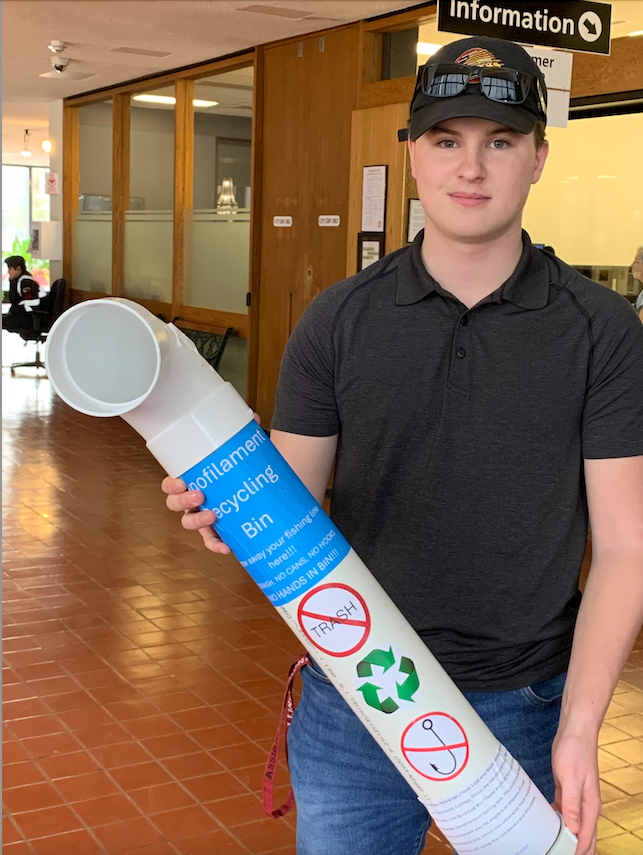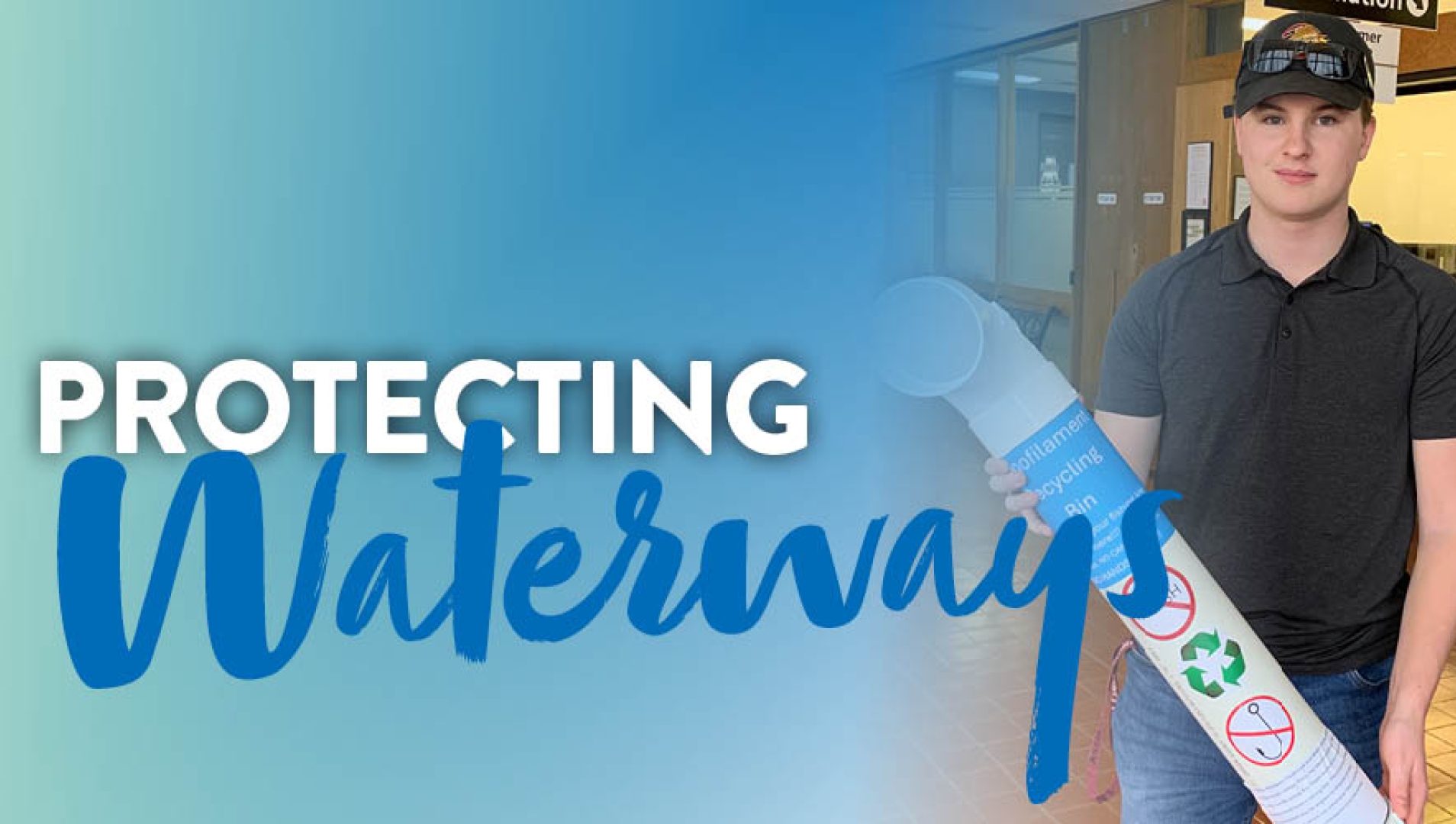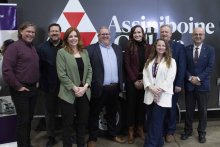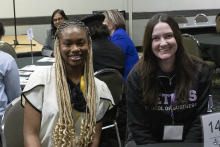Capstone project aims to protect Manitoba waterways
April 23, 2024
"I was introduced to fishing at a pretty young age, so I always enjoyed it and every time I go out there, you always see fishing line on the ground. It ends up harming animals and wildlife. So I thought that picking it up and recycling it would be a good idea for the Assiniboine River."
That’s Shane Hutchings, a second-year student in Assiniboine’s Land and Water Management program, explaining his capstone project – an invention to address the challenge of abandoned fishing line along and in Manitoba’s lakes, rivers and streams.
Fishing line is a common source of plastic pollution, as it often gets discarded improperly and ends up in rivers and lakes. This can harm aquatic life, entangle animals, and contribute to the growing problem of plastic waste.
In response to those dangers, Shane has created a purpose-built recycling bin capable of receiving discarded fishing line and storing it until the bin is emptied for recycling.
The bin is made from a two foot-long piece of PVC pipe, with a 90 degree elbow at the top and a threaded adaptor and plug at the bottom. It’s a simple, durable design that results in an easy and economical opportunity to make a positive impact for our environment.

“A fishing line recycling project is a practical and impactful way to address environmental concerns, reduce waste, and engage the community,” he says. “This can help create a sense of environmental stewardship, and encourage people to take an active role in protecting their local waterways.”
He adds that “Fishing line is made from durable, non-biodegradable materials like nylon or monofilament. Sending these materials to landfills contributes to the growing problem of plastic waste. By providing recycling bins, the project aims to divert this waste and give the fishing line a second life, including being repurposed into new products such as tackle boxes, fish habitat structures, and even new fishing line.”
This not only benefits the environment but also creates opportunities for new industries and job opportunities related to recycling and upcycling.
Shane knows that his recycling bins could be manufactured and sold at a profit, but he feels that protecting the environment is more important than making money from the project.
“I’ve done a process document and a client document that I’ve been handing out to people,” he says. “It teaches you how to build one of your own. So, I’m hoping that other people can make them for themselves too.”
Looking to the future, Shane will be working with Ducks Unlimited this summer and is hoping to build a career in the environmental field over the long term.
With that goal in mind, he has this advice for people who are fishing and their line becomes tangled: “Just think about the environment. Instead of just throwing the line away, recycle it. You might be saving another life.”




